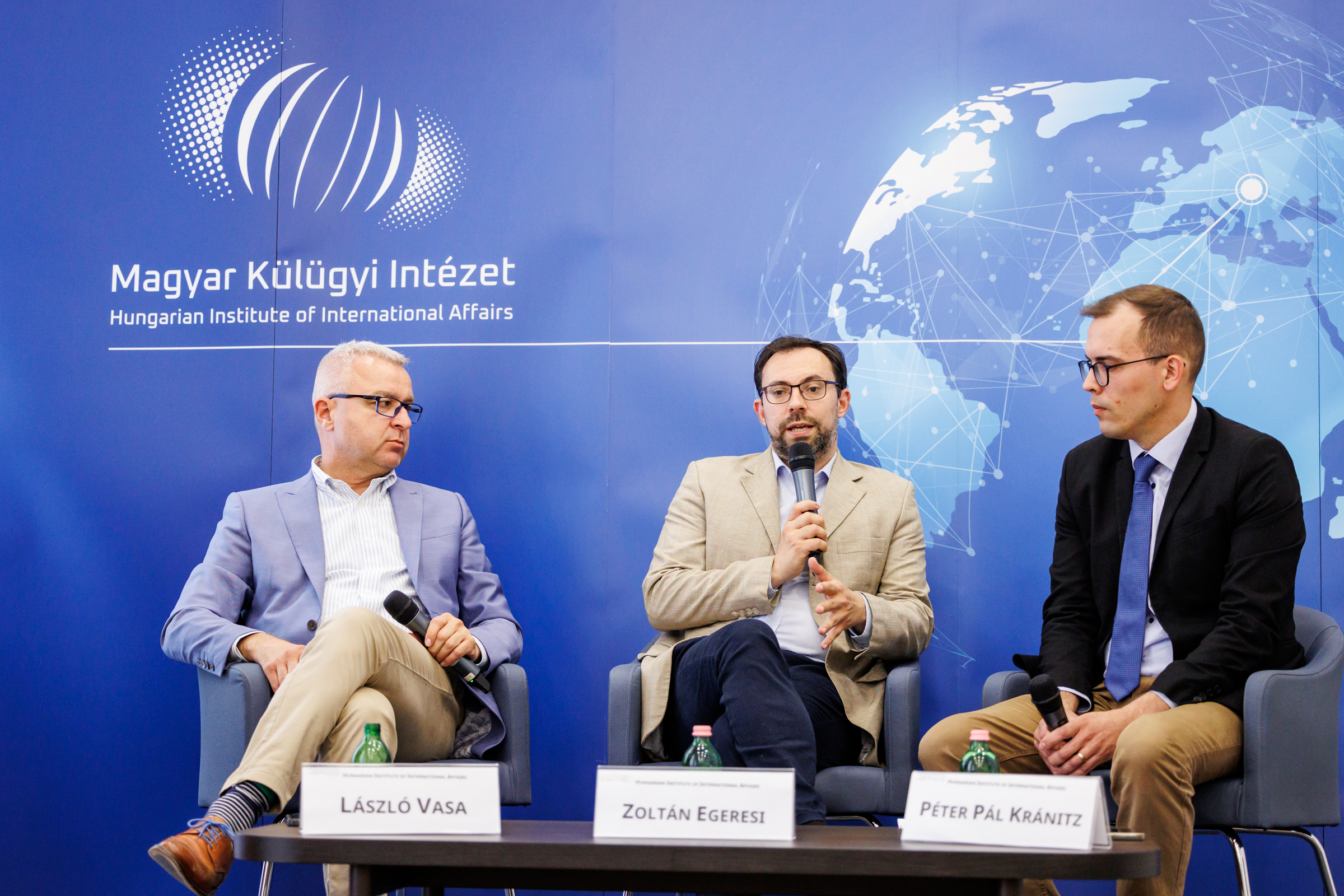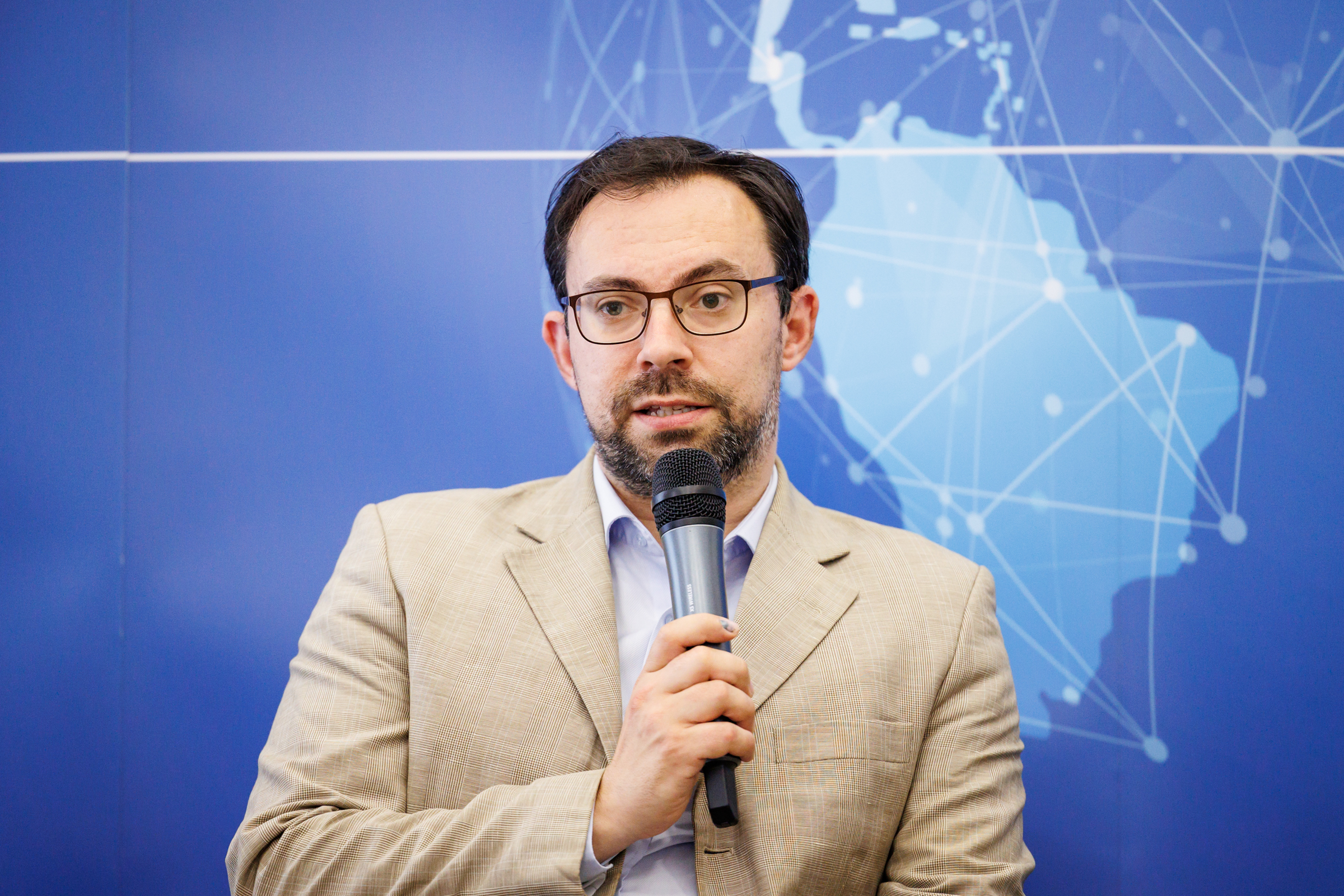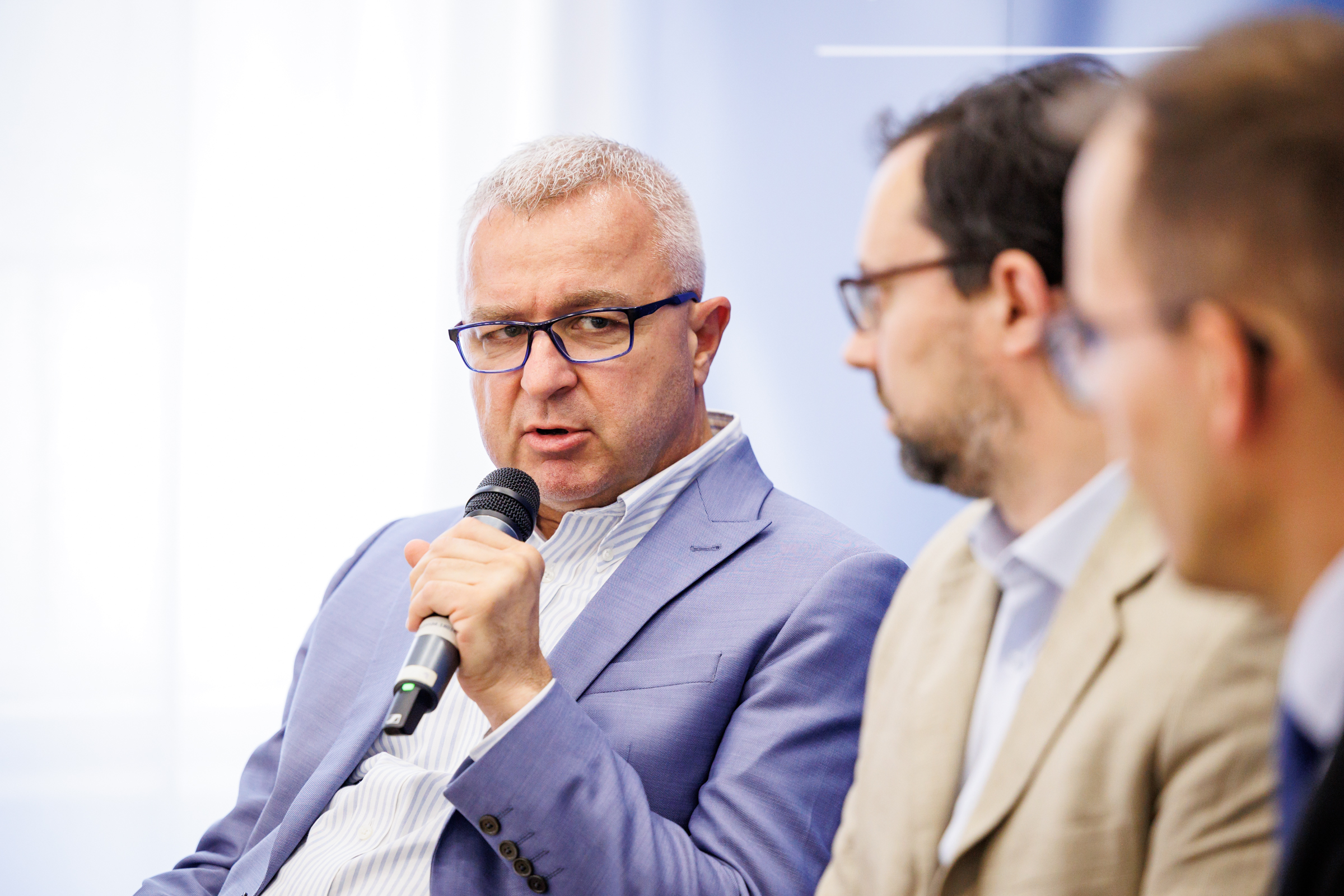On May 22, 2025, the Hungarian Institute of International Affairs (HIIA) held a roundtable discussion titled, “Hungary’s Place in the Organization of Turkic States,” focused on Hungary’s growing involvement in Turkic cooperation with a focus on energy, infrastructure, and defense. The panelists included László Vasa, Chief Advisor and Senior Research Fellow at HIIA, and Zoltán Egeresi, Associate Research Fellow at HIIA. The discussion was moderated by HIIA Senior Research Fellow Péter Pál Kránitz.
László Vasa emphasized that energy is the most visible result of the cooperation. Hungary has strengthened ties with Azerbaijan and Kazakhstan to diversify its energy sources, with investments by companies like MOL. He noted the strategic relevance of the Middle Corridor—linking Central Asia to Europe—especially after the disruption of Russian transit routes following the start of the war in Ukraine. Zoltán Egeresi highlighted the central role of Türkiye as a regional energy hub and its efforts to boost connections with Central Asian states. However, he noted also challenges in pipeline development, especially across the Caspian Sea, and the dominance of China in countries like Turkmenistan.
Both speakers discussed Hungary’s growing defense ties, particularly with Türkiye. Agreements on joint military industrial production and Hungary’s integration into Turkic defense cooperation were cited as key developments. Hungary also balances these with its Western partnerships, including Germany and the United States.
Cultural and soft power elements were also addressed. While Hungary’s Christian identity contrasts with the Muslim-majority Turkic states, shared historical roots support symbolic connections, such as Turanism. Educational cooperation and the presence of Hungarian institutions in the region further reflect Budapest’s soft power strategy.



